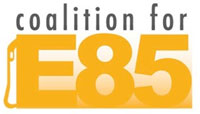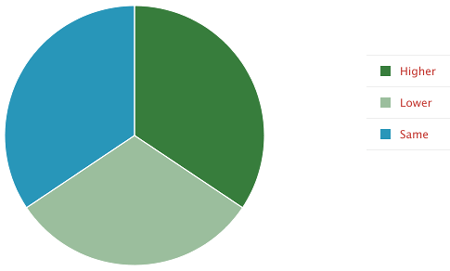Brazilian and U.S. ethanol interests are challenging each other over ethanol trade policy.
The U.S./Brazil Council and the U.S. Chamber of Commerce wrote a joint letter to Congress last week asking that the U.S. secondary tariff on imported ethanol be allowed to expire as scheduled at the end of the year, together with the Volumetric Ethanol Excise Tax Credit (VEETC).
 Meanwhile, Congressman Charles Rangel (D-NY) introduced legislation last Friday that would extend the 54-cent per gallon ethanol import tariff until the end of 2014. “My legislation would preserve duty-free ethanol for the U.S. as well as ensuring that the gains achieved for the Caribbean remain intact,” stated Rangel.
Meanwhile, Congressman Charles Rangel (D-NY) introduced legislation last Friday that would extend the 54-cent per gallon ethanol import tariff until the end of 2014. “My legislation would preserve duty-free ethanol for the U.S. as well as ensuring that the gains achieved for the Caribbean remain intact,” stated Rangel.
The legislation, which is not backed by the U.S. ethanol industry, was immediately condemned by the Brazilian Sugarcane Industry Association (UNICA), saying that “certain parties who benefit from the current, anti-competitive arrangement and their allies in Congress are trying to change the rules by making the tariff a true trade barrier rather than a subsidy offset.”
“As the world’s top producers, the United States and Brazil need to lead by example in creating a free market for clean, renewable fuel,” said Leticia Phillips, UNICA’s Representative in North America. “That means putting an end to trade distorting tariffs on ethanol.”
 Today, the Renewable Fuels Association (RFA) in turn challenged Brazil’s commitment to free trade.
Today, the Renewable Fuels Association (RFA) in turn challenged Brazil’s commitment to free trade.
RFA president and CEO Bob Dinneen wrote his own letter to the U.S./Brazil Council and the U.S. Chamber of Commerce. “Please know that while we share your desire for the removal of trade distorting practices between the U.S. and Brazil, we are very concerned about the Council’s singular and biased focus on U.S. ethanol policy, and its failure to address more timely recent trade distorting practices engaged in by Brazil,” wrote Dinneen, pointing out specific actions taken by Brazil that limit U.S. access to that market.
“Recently, the Brazil government reduced the volume of ethanol that can be blended in fuel from 25% to 20%. As a result of this mandated reduction in blend volumes, U.S. exports of ethanol to Brazil are being dramatically reduced from levels that would have otherwise occurred had Brazil left the mandate at 25%,” said Dinneen.
“Second, while your letter to Congress is correct to state that Brazil’s 20% import tariff has been suspended, you fail to further explain that this suspension was only on a temporary basis. While Brazil’s Chamber of Foreign Trade (CAMEX) did indeed reduce its tariff in April of 2010, the temporary suspension is scheduled to expire one day after the U.S. tariff is set to expire,” Dinneen added, noting that the tariff reduction instituted in April 2010 is scheduled to end the day after the U.S. tariff is set to expire at the end of this month.
Read the RFA letter here.
 This year POET reduced water use by more than 770 million gallons compared to 2009 by using the company’s Total Water Recovery System at their 18th ethanol production facility, POET Biorefining in Chancellor, South Dakota.
This year POET reduced water use by more than 770 million gallons compared to 2009 by using the company’s Total Water Recovery System at their 18th ethanol production facility, POET Biorefining in Chancellor, South Dakota. 


 Meanwhile, Congressman Charles Rangel (D-NY)
Meanwhile, Congressman Charles Rangel (D-NY)  Today, the
Today, the  For the week ending December 2, ethanol production averaged 954,000 barrels per day (b/d) – or 40.068 million gallons daily, which is 24,000 barrels more than the previous week and a new record. Getting close to the end of the year now, the four week average for ethanol production stood at 929,000 b/d, which translates to an annualized rate of 14.25 billion gallons.
For the week ending December 2, ethanol production averaged 954,000 barrels per day (b/d) – or 40.068 million gallons daily, which is 24,000 barrels more than the previous week and a new record. Getting close to the end of the year now, the four week average for ethanol production stood at 929,000 b/d, which translates to an annualized rate of 14.25 billion gallons.
 The
The  According to the Energy Information Administration, Flexible Fuel Vehicles (FFVs) capable of running on up to 85% ethanol fuel represent approximately 98 percent of all the alternative fuel vehicles operating on the nation’s highways. “E85 represents a form of liquid transportation fuel that is growing in use and has an infrastructure investment cost similar to unleaded gasoline,” said Renkes. “Following the lead of the Congress and several recent presidents, many of our members have committed to the production of E85 fueling equipment, and we call on the Congress and Obama Administration to maintain the small incentives provided to advance the sale of E85.”
According to the Energy Information Administration, Flexible Fuel Vehicles (FFVs) capable of running on up to 85% ethanol fuel represent approximately 98 percent of all the alternative fuel vehicles operating on the nation’s highways. “E85 represents a form of liquid transportation fuel that is growing in use and has an infrastructure investment cost similar to unleaded gasoline,” said Renkes. “Following the lead of the Congress and several recent presidents, many of our members have committed to the production of E85 fueling equipment, and we call on the Congress and Obama Administration to maintain the small incentives provided to advance the sale of E85.” It was one year ago last week at the NASCAR Champions Week in Las Vegas that
It was one year ago last week at the NASCAR Champions Week in Las Vegas that  At this year’s Champions Week in Las Vegas, Growth Energy CEO Tom Buis
At this year’s Champions Week in Las Vegas, Growth Energy CEO Tom Buis  The
The 